Innovation
Mak-RIF Round 5 Track 1 Request For Applications
Published
2 years agoon
By
Mak Editor
SECTION A: BACKGROUND
A1. Funding opportunity description
Makerere University received special funding from the Government of the Republic of Uganda, to support high impact Research and Innovations. The Financial Year 2023/24 will be the fifth year of this fund’s availability. The fund illustrates the increasing importance that the Government attaches to Research and Innovation as a driver of socio-economic transformation. The objective of the fund is to increase the local generation of translatable research and scalable innovations that address key gaps required to drive Uganda’s development agenda. The fund is therefore aimed at complementing available funding to address unfunded priorities critical to accelerating development. Over the last four Financial Years (2019/20, 2020/21, 2021/22 and 2022/23), government appropriated 105.5 Billion Uganda Shillings. Between the four years, MakRIF has funded a total of 1,028 projects across all sectors critical for development, of which 457 have been completed. During the Financial Year (2023/24), Makerere University expects to receive about 25 Billion Uganda shillings (US$ 6.8 million) under the Government Research and Innovation Fund (RIF). Of this, at least five (5) Billion Shillings will fund new ideas that respond to a widely consultative Research Agenda focused on national priorities while the rest will fund continuing projects from previous financial years, extension of multi-year projects, needs based priorities, and commercialization/scaling of prior funded projects. The Makerere University Research and Innovation Grants Management Committee (GMC) therefore announces the RIF Round 5,
Track 1 (New Research & Innovation Agenda-Based Grants). Available funds are obligated for the Financial Year 2023/2024. The GMC therefore invites applications with original ideas that demonstrate a clear link to key thematic areas of the National Research and Innovation Agenda.
A2. Research for Economic Development
To transition to middle-income status, low-income countries must increasingly invest in research and innovations that provide solutions to persistent development challenges. Universities should be at the fore-front of driving this research agenda. The Government of Uganda is currently implementing the 3rd National Development Plan (NDP) (2020/21 – 2024/25). However, the NDP and sector specific plans require research to fill evidence gaps. The main objective of the RIF is to support R&I initiatives that contribute to better delivery of National Development initiatives in all sectors critical to the economy.
A3. Scope and Technical Description of the Research and Innovation Grant
The RIF GMC’s terms of reference include development of an instructive research agenda as the basis for identifying funding priorities. The GMC conducted a comprehensive stakeholder consultation to identify priority thematic areas of interest for national development. These consultations included meetings with representatives from key government sectors, semi-autonomous government agencies, the private-for-profit sector and civil society. The GMC triangulated this information with that from the National Development Plan III, the Makerere University Strategic Plan and Research Agenda, the Sustainable Development Goals, and the critical areas in the National Budget for FY2023/2024. The RIF Round 5, Track 1 (Research & Innovation Agenda-Based Grants) will therefore specifically target research and innovation projects that align with priority thematic issues in the instructive Research Agenda that arose from these consultations. Research and Innovation ideas are therefore sought in the following thematic areas:
- Theme 1: Transforming the agricultural sector to drive development.
- Theme 2: Achieving Sustainable health as a means to sustainable development.
- Theme 3: Re-imagining Education to unlock capacity for economic development.
- Theme 4: Water, sanitation and the environment: A pre-requisite to sustainable development
- Theme 5: Harnessing the social sector, culture and arts to drive development.
- Theme 6: Harnessing tourism, wildlife and heritage to drive development.
- Theme 7: Sustainable Planning, finance and monitoring as catalysts for growth.
- Theme 8: Leveraging public service and local administration for efficient service delivery.
- Theme 9: Defense and security: Achieving sustainable peace and stability.
- Theme 10: Strengthening law, governance, human rights and international cooperation as prerequisites for development.
- Theme 11: Harnessing Information and Communication Technology to drive development.
- Theme 12: Works, manufacturing, science and technology as tools to accelerate development.
- Theme 13: Solutions to catalyze business and enterprise.
- Theme 14: Energy and Minerals as drivers of rapid economic development.
The Government Research & Innovation (R&I) Grants will cover all technical disciplines in Makerere University as long as the research questions align with the instructive research agenda themes above. Particular attention will be paid to unfunded priorities, those for which funding has been inadequate, or for which available funding only covers one or a few of the components needed to inform development initiatives in a holistic way. This grant is not primarily meant to supplement existing research projects that already have funding from other sources. However, researchers can apply on the platform of existing projects if they provide a strong justification that there are important funding gaps in the current research project and the added deliverables expected from the additional support to the existing research effort. This grant also emphasizes a multi-sectoral approach. Research groups are therefore encouraged to work with other sectors that complement their technical focus.
Please see below for full guidelines
Key dates to note:
- First Researcher Support Webinar: Friday, September 29, 2023 at 11:30am EAT using the link https://us06web.zoom.us/meeting/register/tZckduqupzgsG9PZ7jaShA8V1eHg5p5QdjQP
- Application Deadline: Friday October 20, 2023.
You may like
-
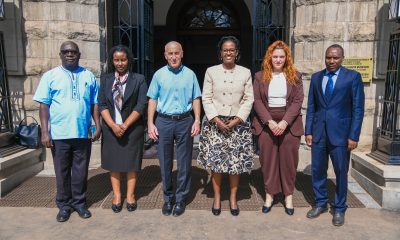

Israeli Ambassador Lotem Talks Innovation on Farewell Visit
-
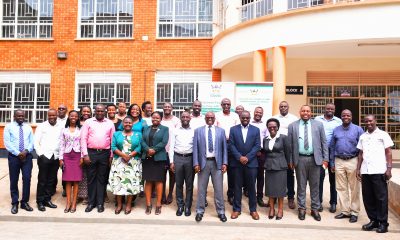

GAMSU Training Workshop Urges CoBAMS academic staff to embrace grant writing
-
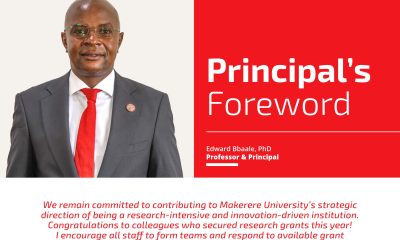

CoBAMS Annual Report 2024
-
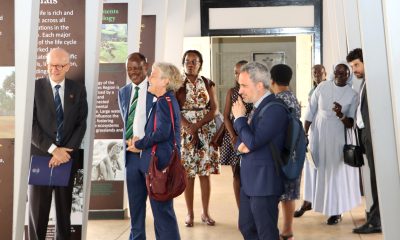

Makerere Marks 40 Years of Cultural and Academic Cooperation with the Italian Ethnographic Mission
-
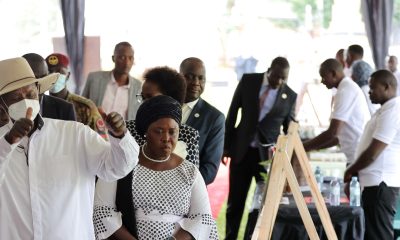

Mak-RIF Newsletter April 2025
-
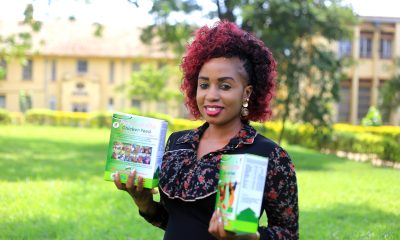

Novel Chicken Feed with a Cocktail of Bacteriocins and Phytobiotics
Agriculture & Environment
NbS4Tea Project Team Makes Great Progress, Deploys Drones for Data Collection
Published
1 week agoon
June 24, 2025
****Funded by the Danish Fellowship Centre under Denmark’s Ministry of Foreign Affairs, NbS4Tea is a five-year initiative aimed at enhancing climate resilience and tea productivity in Uganda.
Launch of drones for data collection
The Nature-based Solutions for Tea (NbS4Tea) project has registered a significant milestone with the successful deployment of drones to improve environmental and agricultural data collection.
On 19th June 2025, the project team officially launched the drones at the Rwebitaba Tea Research Centre in Kyenjojo District, the project’s main research hub. The launch event included hands-on training sessions by Mr. Timothy Mutungi, a certified Remote Sensing Drone Pilot. Mr. Mutungi provided detailed instruction on drone operation, safety procedures, and data acquisition techniques specifically tailored to the project’s goals. The training was attended the core NbS4Tea researchers as well as students supported by the project.

By utilizing drone technology, the team will be able to capture high-resolution imagery and gather critical environmental data across vast tea-growing areas. This will enable more precise assessments of biodiversity, soil health, water use, and overall ecosystem services. The valuable insights generated will guide the development of sustainable, nature-based agricultural practices with the potential for widespread adoption throughout the tea industry.
About the NbS4Tea Project
NbS4Tea is a five-year initiative aimed at enhancing climate resilience and tea productivity in Uganda. Funded by the Danish Fellowship Centre under Denmark’s Ministry of Foreign Affairs and led by Dr Emmanuel Arthur from Aarhus University, the project is being implemented through a consortium of Ugandan and Danish institutions namely: Makerere University, the National Agricultural Research Organization (NARO), Uganda, Uganda Tea Association, Aarhus University, Denmark, and Kick-start International.

The primary objective of the project is to sustainably close the tea yield gap in Uganda by developing research-driven, nature-based solutions that enhance the climate resilience of tea production systems. This involves identifying climate-resilient tea varieties, integrating tea prunings and banana by-products, utilizing nitrogen-fixing agroforestry trees, and improving irrigation management. The approach emphasizes socio-economic feasibility, capacity building in research, and a market-oriented, multi-stakeholder collaboration to ensure both environmental and economic sustainability.
At Makerere University, the project is coordinated by Dr Alex Nimusiima from the Department of Geography, Geo-Informatics and Climatic Sciences at CAES. Other Project members are; Dr Grace Nakabonge from the Department of Forestry, Biodiversity and Tourism; Dr Prossy Nakawuka from the Department of Agricultural and Bio-systems Engineering; Dr Twaha Ali Basamba from the Department of Agricultural Production; and Dr Alice Turinawe from the Department of Agribusiness and Natural Resource Economics.

Specific objectives
- Identify and quantify climate change impacts on tea yield and quality based on historical and newly obtained data and novel data mining methods.
- Screen, select and recommend tea varieties adapted to abiotic (drought and heat) and biotic stresses (diseases and pests).
- Develop new knowledge on the potential of local waste biomass (tea prunings, banana pseudostems and peels) as soil amendments- mulch, compost, biochar, to recycle nutrients, improve soil fertility, increase carbon sequestration and alleviate drought.
- Reveal NbS through agroforestry combined with organic mulch, irrigation and resilient tea varieties that increase biodiversity and tea yield.
- Innovate new methods to enhance tea production under climate change through rainwater harvest and climate-smart irrigation infrastructure.
- Empower vulnerable groups (women, youth, and people with disabilities) in tea production and processing to ensure multi-actor involvement and socio-economic benefit outreach of the proposed NbS in tea cultivation and production.
- Identify export market strategies for NbS tea products, aligned with consumer preferences.

Progress thus far
Launched in January 2024, the project, organized in five work packages, has registered significant progress. Each of the work packages listed below supports one PhD student and one Masters’ student. The PhD students are: i) Mr. Adiga Hassan from the Department of Geography, Geo-Informatics and Climatic Sciences at CAES conducting research under work package 1; ii) Ms. Sarah Namayengo from the Department of Forestry, Biodiversity and Tourism conducting research under work package 2; Ms. Vivian Namutebi from the Department of Soil Science and Land Use Management undertaking research on work package 3; Mr. Keneth Chelimo from the Department of Agricultural and Biosystems Engineering conducting his research under work package 4; and Ms. Moreen Asasira from the Department of Agribusiness and Natural Resource Economics focusing on work package 5. The Masters students are: i) Ms. Evelyn Katasi from the Department of Environmental Management at CAES (work package 1), Mr. Vereriano Turyahebwa from Department of Forestry, Biodiversity and Tourism (work package 2); Mr. Ben Okurut from the Department of Soil Science and Land Use Management (work package 3); Mr. Augustine Okot from the Department of Agricultural and Biosystems Engineering (work package 4); and Mr. Augustine Kigozi from the Department of Agribusiness and Natural Resource Economics (work package 5)

Work packages and achievements registered
Work Package 1: Climate change impacts on tea yield and quality – Headed by Dr. Alex Nimusiima
This work package centres on the analysis of historical and projected climate conditions in the study area. It examines how current climate patterns influence tea production, as well as the potential effects of future climate change on tea yield and quality.
Progress
i) A household survey assessing the socio-economic status of tea farmers and the effects of climate variability on their livelihoods has been completed.
ii) The collected data has been cleaned, and the Masters student supported under this work package is currently writing her thesis based on the survey findings.
iii) A historical climate analysis of the study area has been conducted by the PhD student, who is now preparing a manuscript.

Work Package 2: Screening & selecting tea genotypes for resilience to abiotic and biotic stresses – Headed by Assoc. Prof. Grace Nakabonge
This work package focuses on evaluating existing tea genotypes for their resistance to pests and diseases, using chlorophyll fluorescence imaging as a diagnostic tool.
Progress
i) A screen house has been constructed to serve as the experimental site.
ii) Germplasm from two tea varieties is currently being cultivated in the screen house in preparation for the upcoming experiments.
iii) A drone has been acquired to assist in data collection for this work package.

Work Package 3: Evaluation of NbS for climate resilience, higher yield and biodiversity- Headed by Assoc. Prof. Twaha Ali Basamba
This focuses on the characterization of mulch and biochar derived from tea prunings to improve soil health. It also aims to quantify the added value of Nature-based Solutions (NbS) in enhancing tea productivity, promoting climate resilience, and supporting biodiversity.
Progress
- So far, Biochar has been produced from tea prunings and characterized.
- The Masters student supported under this work package is writing his thesis on the results of biochar characterization.

Work Package 4: Innovating smart and scalable irrigation technology for improved tea production- Headed by Dr. Prossie Nakawuka
This work package aims to develop and evaluate smart, scalable irrigation solutions to boost tea production. It focuses on assessing how irrigation impacts tea yield and quality, measuring water use efficiency, and analyzing the economic returns of irrigation practices. Additionally, it explores deficit irrigation and climate-resilient strategies to ensure sustainable tea farming in changing environmental conditions.
Progress
- The irrigation infrastructure is now in place and fully operational at Rwebitaba Tea Research Centre in Kyenjojo District.
- The experimental plots for irrigation experiments are already in place with water pipes.

Work package 5: Socio-economic assessment of tea-agroforestry and selected tea varieties – Headed by Dr. Alice Turinawe
This work package emphasizes co-creation within multi-stakeholder innovation networks to evaluate the economic feasibility and market access of tea agroforestry systems. It also focuses on promoting gender balance and understanding consumer valuation of Nature-based Solutions (NbS) tea from Uganda.
Progress
To date, two co-creation workshops have been successfully conducted and the Masters student under this work package is currently analyzing the workshop results as part of their research.

Expected outputs and outcomes
- Increased tea production, productivity, and biodiversity through the adoption of NbS.
- Increased research and technical capacity of Makerere and R-ZARDI.
- Holistic stakeholder insight on economic feasibility, consumer acceptance and market access strategies, especially for vulnerable groups in the tea value chain.
- Increased job prospects for youth and women in tea production sub-sectors.
- Improved social status and increased incomes of tea farmers, traders, and exporters.
- Improved economic and environmental quality by recycling biomass waste into value-added products dedicated to soil enhancement.
- 4+ high-yielding tea genotypes adapted to drought and heat, diseases and pests.
- 15+ scientific articles, conference presentations.
- Five PhDs and Five MSc degrees.
- Market access assessment and empowerment.

Details on the project: https://news.mak.ac.ug/2024/01/new-caes-project-to-improve-tea-production-in-uganda/
More photos from the event



General
Meet Safali Libia, a Mastercard Foundation Scholar-alumnus who rebuilt his life as a refugee in Uganda
Published
2 weeks agoon
June 20, 2025By
Mak Editor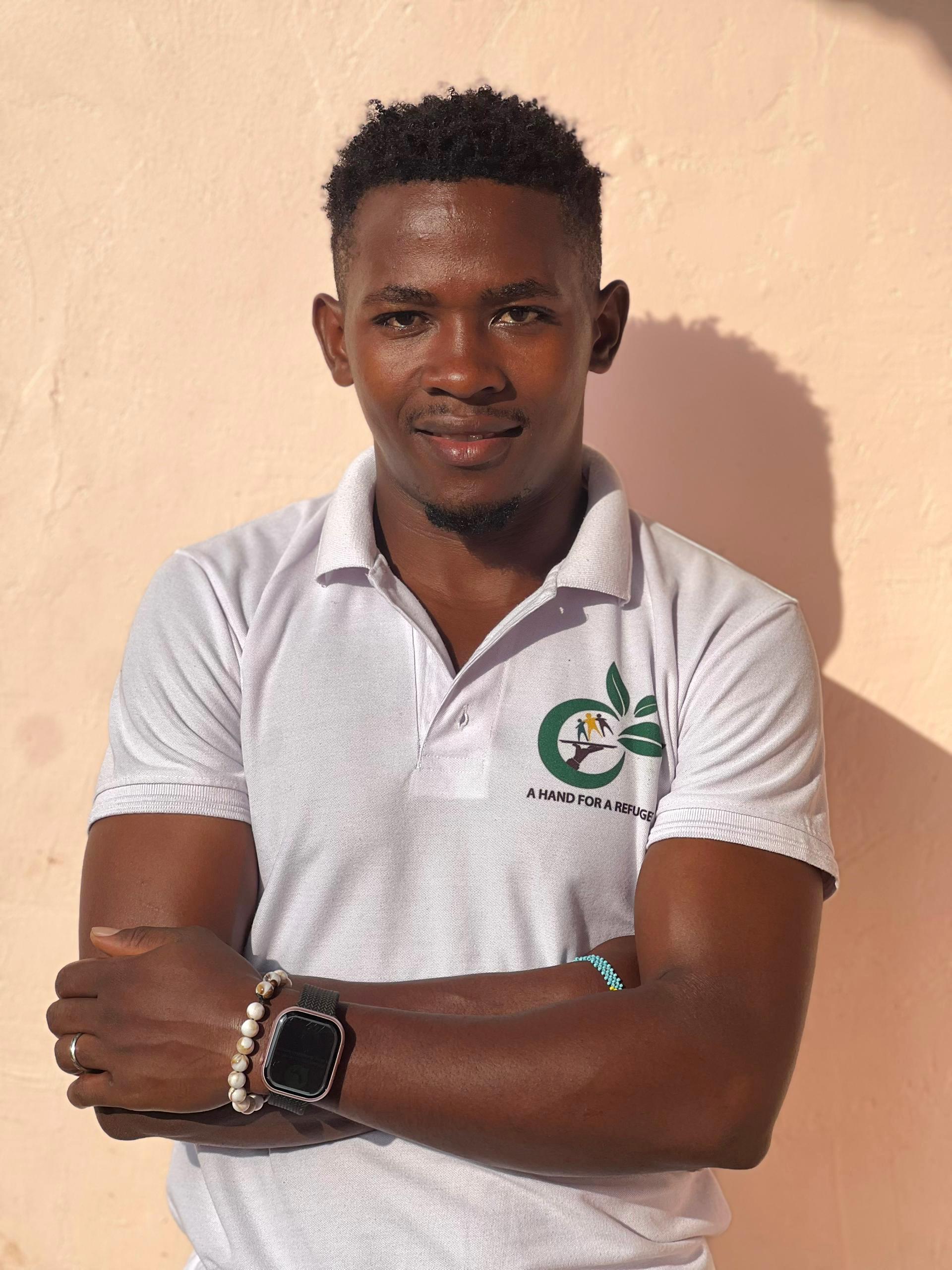
In recognition of International World Refugee Day this year, themed “solidarity with refugees,” the Mastercard Foundation Scholars Program at Makerere University proudly highlights the remarkable achievements of our Scholars and alumni with refugee backgrounds. These individuals have shown incredible resilience and determination, making a profound impact in their communities. Today, we are excited to share the inspiring story of Safali Libia, a Scholar-alumnus who, despite facing numerous challenges, successfully joined Makerere University through the Mastercard Foundation Scholarship, graduated, and actively contributes to his community at Kyangwali Refugee Settlement. He launched a transformative social venture project, A Hand for a Refugee, aimed at advancing the agriculture sector and enhancing livelihoods.
I was born in 1997 in Bunagana, Eastern Democratic Republic of Congo. In 2013, I fled to Uganda due to the armed conflict in my home country. My life was rebuilt in Kyangwali Refugee Settlement, where I found a new beginning.
Despite the challenges, I worked hard through school and was eventually admitted to Makerere University. There, I graduated with a Bachelor of Arts in Economics as a proud Mastercard Foundation Scholar. Accessing education in a peaceful environment changed the trajectory of my life. While at university, I decided to change the narrative about refugees. Too often, we are viewed through a lens of pity rather than potential. In my second year at Makerere, I allocated part of my scholarship stipends to support my family and also fund youth activities in the settlement. I mentored younger students, encouraged girls to stay in school, and advocated for inclusive development policies that recognise refugees as contributors, not burdens.
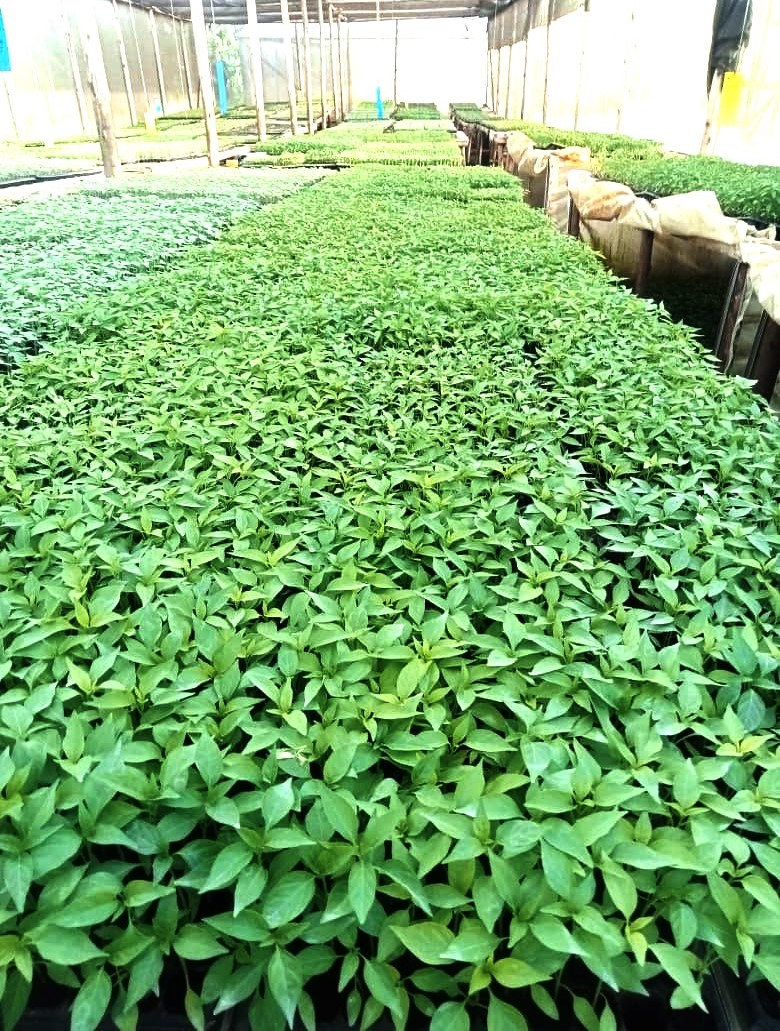
I also noticed how refugees have limited access to resources and opportunities. Many can only engage in small-scale agriculture or petty trade, yet they have dreams and abilities far beyond that. This realisation led me to co-found ‘A Hand for a Refugee’, a youth-led social enterprise driven by a profound understanding of the urgent need to strengthen the socio-economic well-being of refugee communities. We envision a future where refugees are not solely reliant on aid but are empowered towards self-reliance and can sustainably meet their diverse household needs, including ensuring access to education for their children, providing sufficient and nutritious food, securing safe drinking water, and fostering improved living conditions.
We focus on practical and sustainable solutions, providing comprehensive skilling and training in the two thematic areas of climate-smart agriculture livelihood for refugees and youth/women economic empowerment. Recognising the diverse experiences of refugee farmers, we provide support through comprehensive extension services and market linkage initiatives. These efforts are designed to enhance agricultural productivity, foster economic self-reliance, and promote sustainable livelihoods.
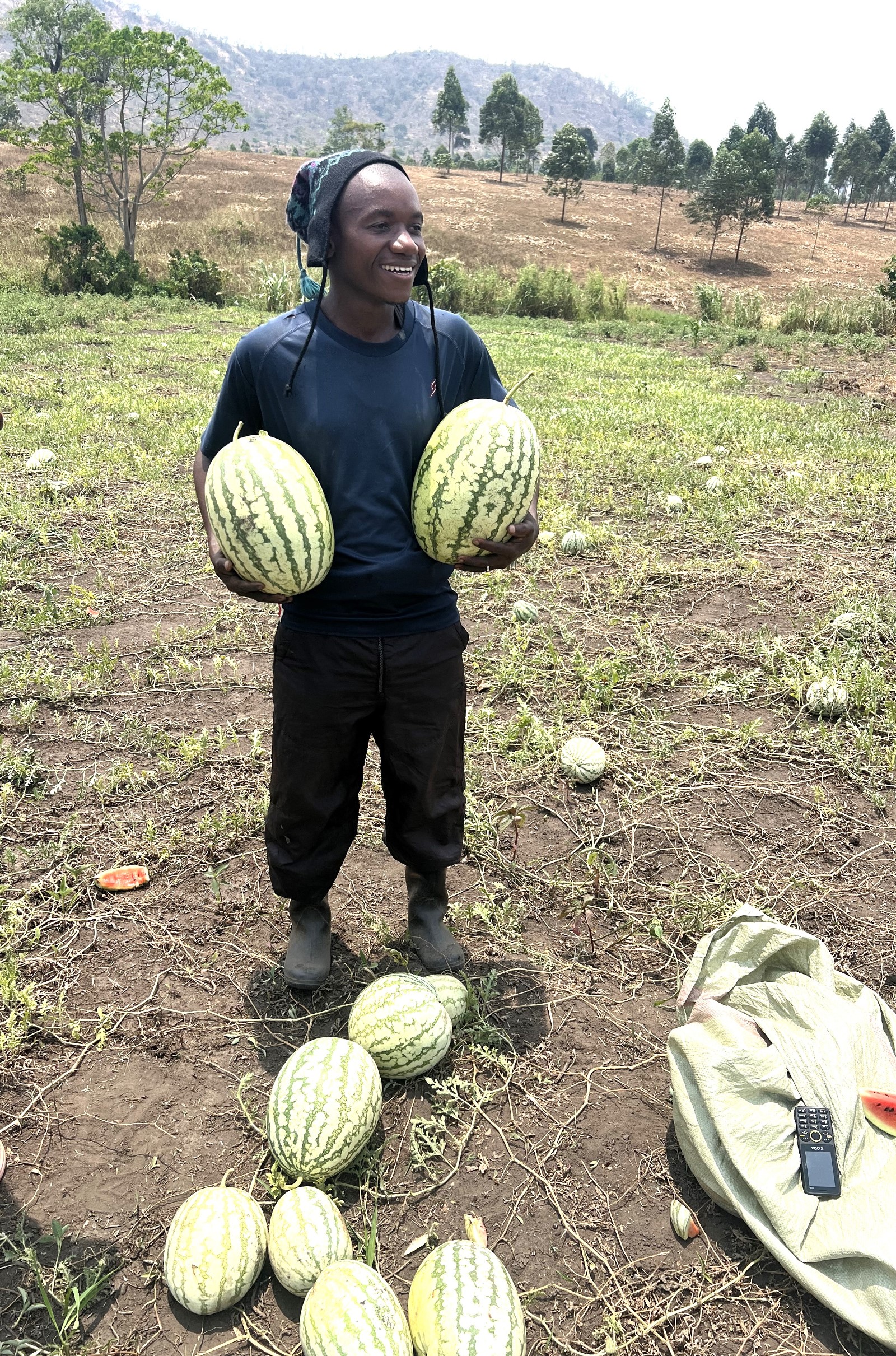
So far, we have trained fellow refugees in modern, climate-smart farming techniques and supported them in growing high-value crops like passion fruits, tomatoes, onions, and cabbages, which could thrive on small plots of land. Through these efforts, we strengthened food security and restored dignity. Our initiative has trained over 50 farmers, empowered women and youth, and demonstrated that refugee-led solutions are practical and sustainable. The Anzisha Prize and the Mastercard Foundation Scholars Program have recognised my work as a shining example of refugee-led innovation and a testament to whatrefugees can achieve when given the opportunity.
Today, I serve as the General Secretary of the Kyangwali Refugee-Led Organisations Umbrella. I encourage fellow refugee youth to take up leadership roles. We are not helpless; we are resourceful, determined, and resilient. All we need is trust, tools, and opportunity.
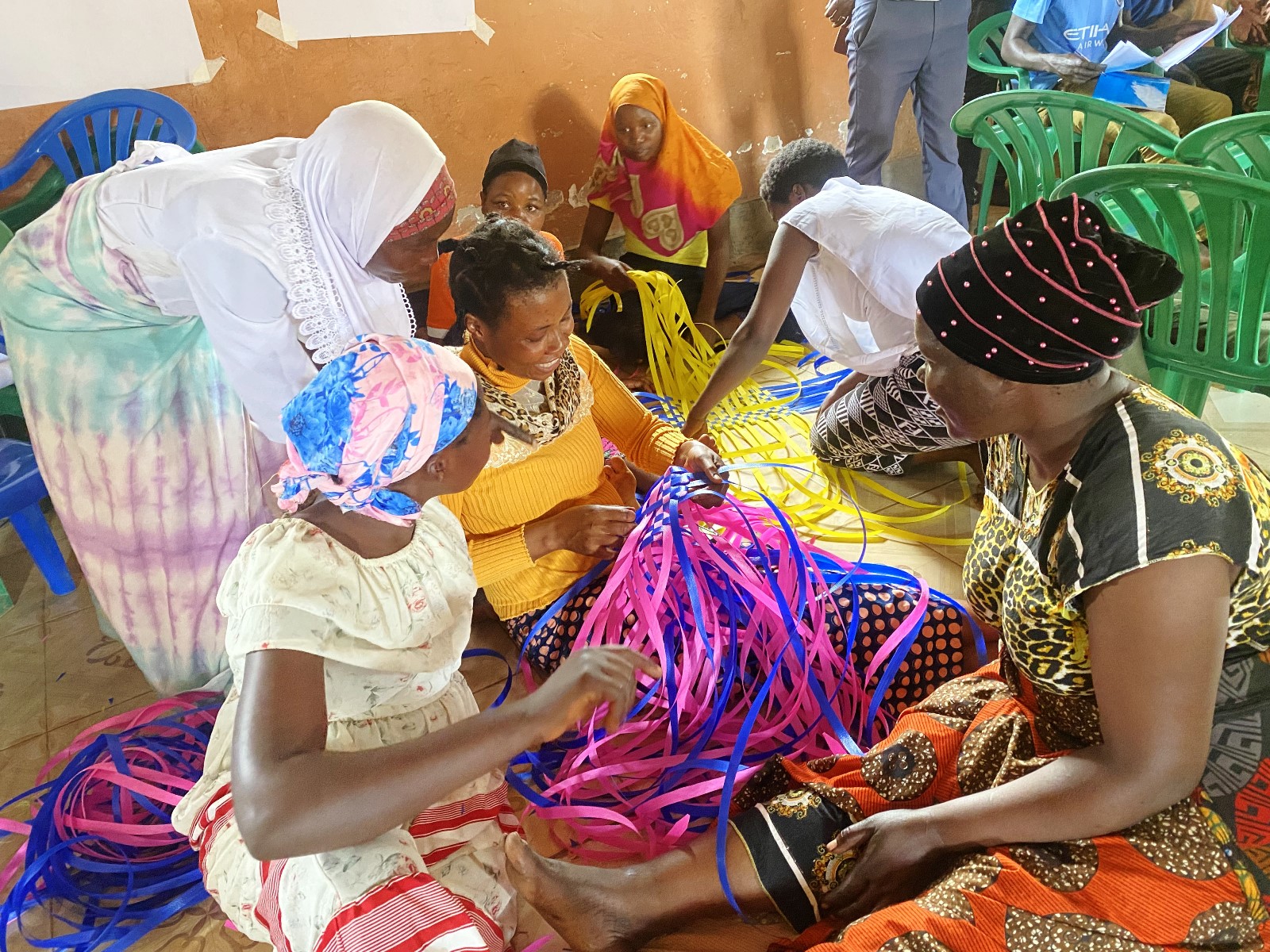
On this World Refugee Day, I call upon refugee youth not to wait for change but to be the change. We carry the solutions to our own problems. With education, courage, and unity, we can build more than survival; we can build thriving futures.
Let my journey remind the young people in different settlements that leadership, resilience, and hope can grow even in difficult conditions. I represent a new generation of refugees who do not see themselves as victims of circumstance but as architects of change, ready to rebuild their communities from the ground up. As we commemorate this day, let us celebrate young visionaries for surviving, thriving, and illuminating the way forward for millions of others displaced by conflict and crisis. In this struggle, I have planted seeds of hope, demonstrating that from within the refugee settlements of Africa can emerge the leaders of tomorrow. If I can do it, you can too.
General
Mastercard Foundation Scholars Program Alumni among top picks for global award
Published
7 months agoon
December 4, 2024By
Mak Editor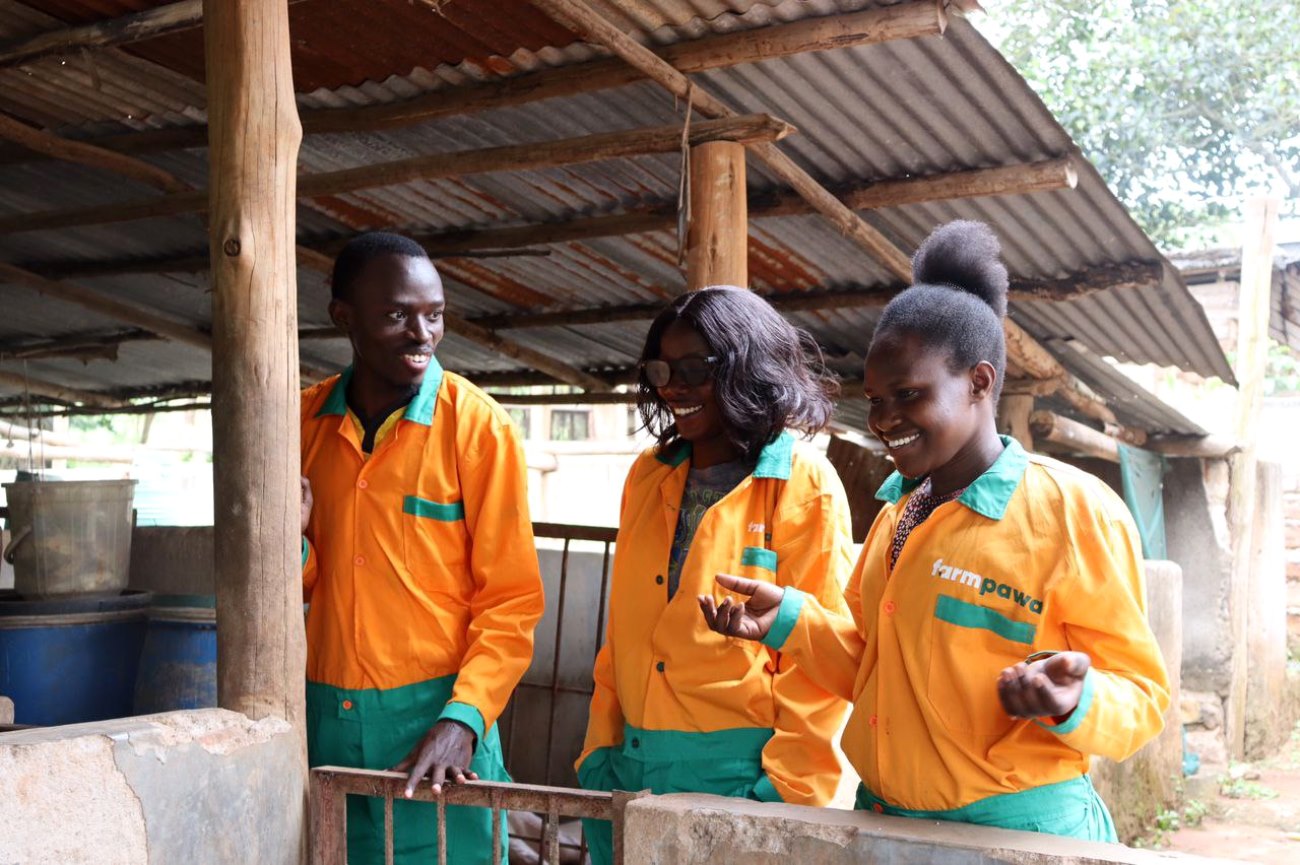
By Bernard Buteera & Carol Kasujja Adii
Moses Eteku, a Mastercard Foundation Scholars Program Alumni at Makerere University and the co-founder of a Kampala-based youth Fintech start-up Farmpawa, has been selected among the finalists for a prestigious global award for the project.
Farmpawa is a crowd-farming platform that connects investors with tangible farming assets, empowering farmers and driving sustainable agricultural growth.
The start-up had an opportunity to showcase its strategic plan, which, once realized, could benefit many young people from the region.
The contest, which sought to identify the most viable youth project with an economic impact on the community, attracted over 300 teams from 30 countries in Africa and the rest of the world.
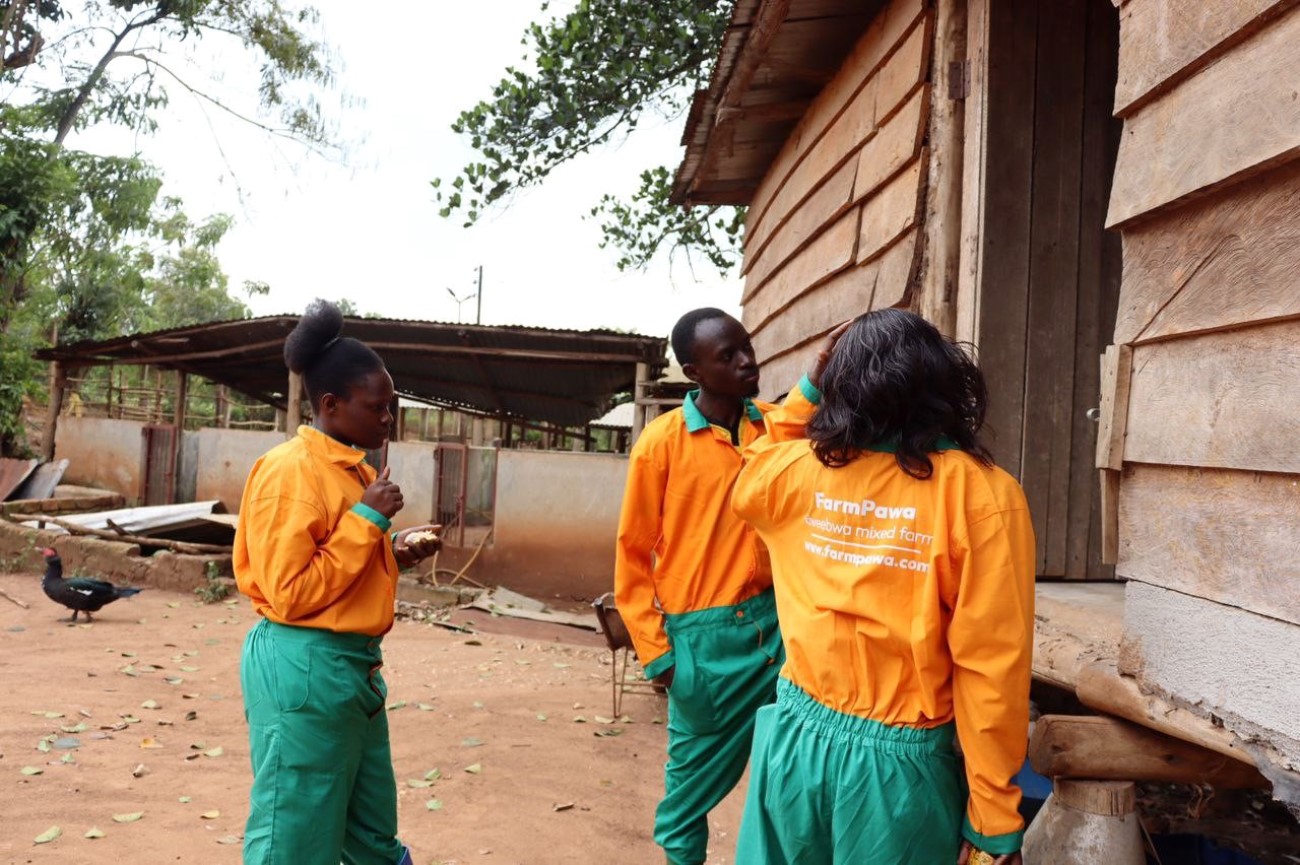
Moses Eteku, 27, founded Farmpawa with two partners, Medard Mutatina and Osborn Gumoshabe, in 2023. The project was selected as one of the ten semi-finalists in the Milken-Motsepe Prize in FinTech.
The Milken-Motsepe Prize in FinTech is designed to expand small businesses’ access to capital and financial services in emerging and frontier markets.
According to research, in 70% of emerging markets, SMEs are the primary source of formal employment, accounting for 70% of jobs.
Moses described the win as a miracle and an eye-opener, saying other participants presented world-class proposals.
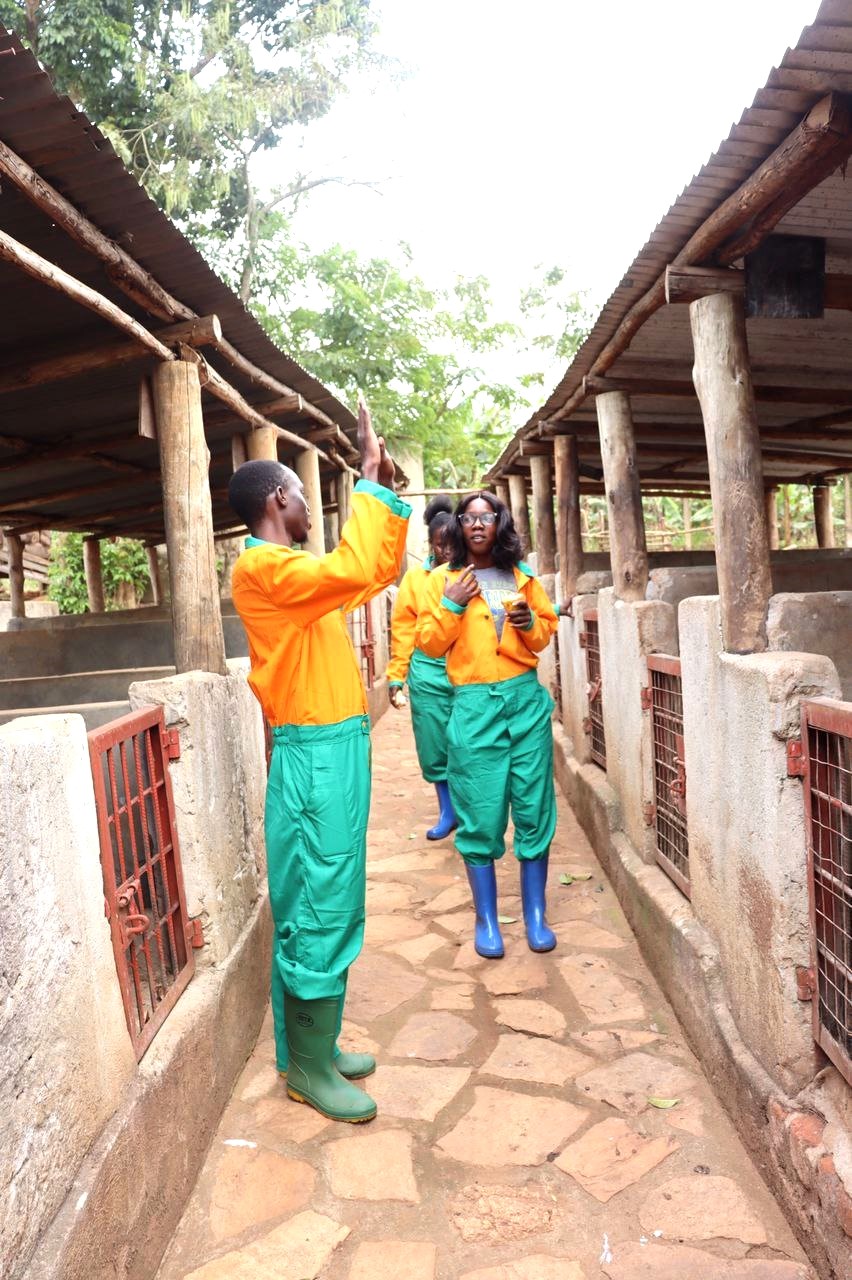
“Most of my competitors were far advanced. I could not imagine I would be selected,” he said with a smile during the interview.
With this fund, Moses and his partners, Medard and Osborn, envision a future where agriculture bridges the gap, reduces inequality, and transforms the lives of farmers and individuals across Uganda and beyond.
Semi-finalists will participate in an Innovation Showcase at the Milken Institute’s Middle East and Africa Summit in Abu Dhabi, UAE, on December 5 to 6, 2024.
Each semi-finalist team receives $100,000 in funding. Three teams will be selected to move on to the final round, where they will compete for the $1 million Grand Prize.
Who is Moses Eteku
Eteku, a Mastercard Foundation Scholars Program Alumni from Makerere University, graduated with a Bachelor of Science in Computer Engineering.
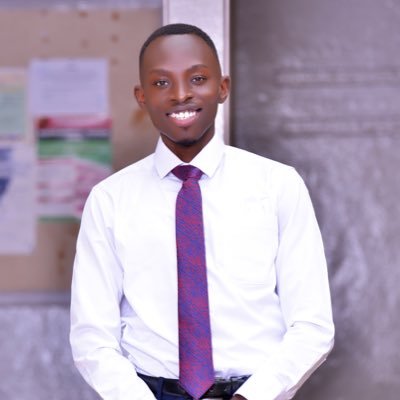
His passion for changing the community has led him to start several projects, including giving the youth a chance to showcase their talents and connect them with relevant organizations and companies.
While at the University, he developed an interest in managing software. He repaired his classmates’ laptops and earned some money. In his third year, he decided to learn another skill. He teamed up with other members and built business solutions. He developed applications that improved the operations of organisations such as Makerere University Hospital, where he worked on the MakRTI mobile application.
One of his significant achievements was developing the MakRTI App, an Android-based mobile application designed to promote reproductive health awareness and improve access to treatment for students at Makerere University. The app provided critical information about reproductive tract infections (RTIs) and facilitated access to healthcare services through appointments and direct communication with specialists.
He also developed an app for students to access the Uganda Museum. Instead of going to the museum and waiting in line to pay, Students would book online, which eases access. At the same time, students can remotely access study materials like archives while at home.
Even when he completed University, he continued using various projects to educate youth on emerging issues.
Among his most impactful initiatives is Kauntabook, a financial record-keeping app targeting SMEs and individuals. The app simplifies financial management by offering tools to track income, expenses, and other bookkeeping functions. With over 800 users, Kauntabook continues to evolve based on user feedback, reflecting Eteku’s commitment to creating user-centric solutions.
Starting Farmpawa
Farmpawa was born from a shared vision among Moses, Medard and Osborn: to empower smallholder farmers in Uganda. Medard, then a Makerere University Business School student, Suggested to Moses and interested him in an idea he had seen in South Africa.
“I researched about it, and we decided to team up and pursue the idea,” Eteku said.
Together, they created a platform that connects farmers with investors, unlocking opportunities for sustainable growth in rural communities.
They aim to make agricultural investment accessible to all, enabling local economies to develop and foster shared prosperity.
“Since the launch of Farmpawa, we have established strong connections between investors and farmers that have directly led to job creation, community development, and wealth generation,” Eteku asserted. They started the business with friends and family who trusted and invested.
Benefits
Initially needing more solid information technology skills, Moses Eteku is now an IT expert.
His opportunities to interact with the Company’s Chief Executive Officers have helped him to improve his entrepreneurship skills.
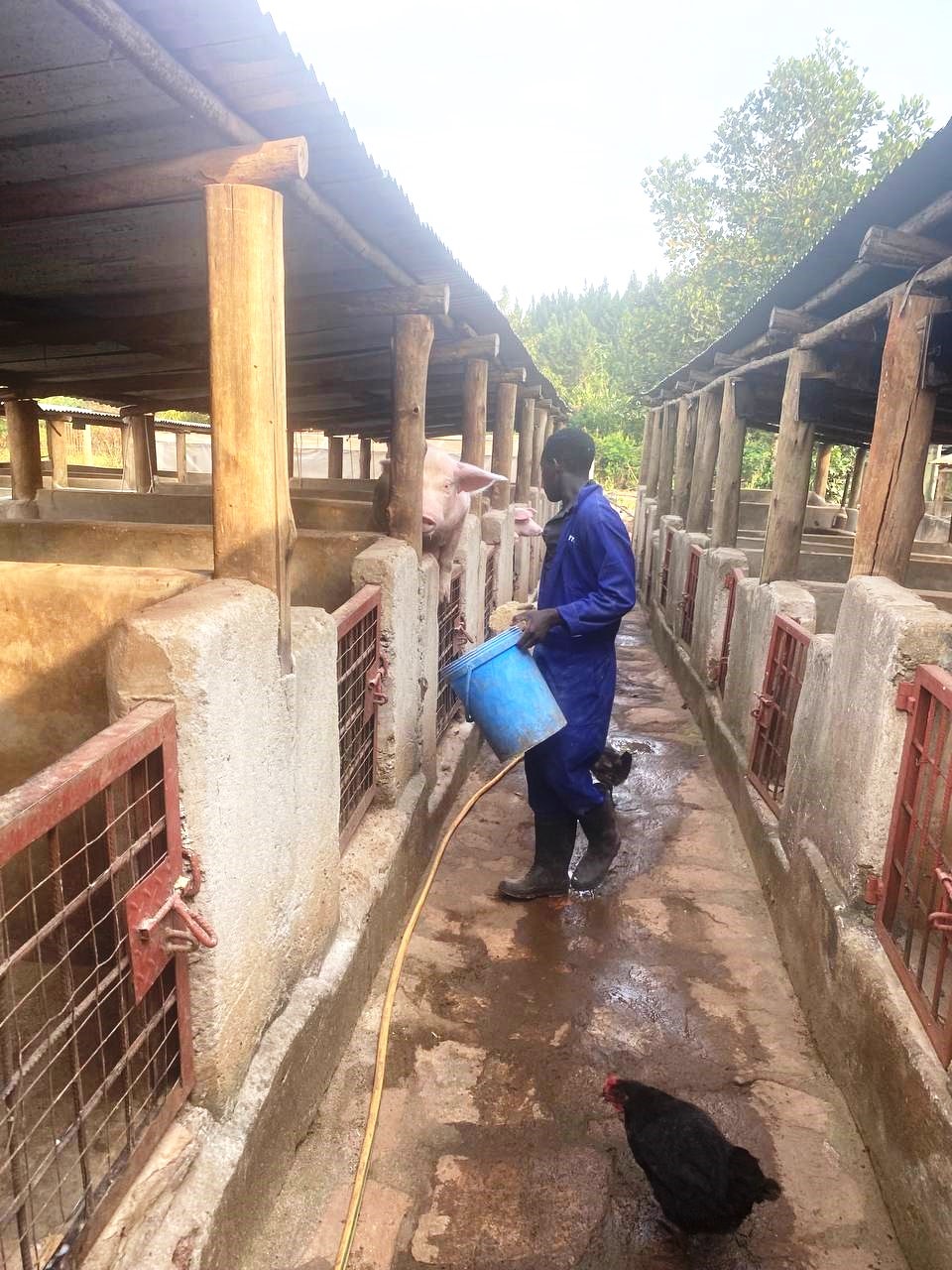
Farmpawa offers key benefits by empowering smallholder farmers with access to capital, enabling them to expand their operations and improve their livelihoods. It provides investors with easy and transparent access to agricultural investments, promoting job creation, community development, and sustainable agriculture while contributing to economic growth and food security.
How Farmpawa works
Farmpawa enables users to invest in real farming assets while empowering smallholder farmers. Users begin by creating an account and funding their wallet through mobile money or bank transfers. With funds in their wallet, they can explore and select farming projects or assets, such as livestock, and purchase portions as shares added to their investment portfolio.
The platform has a dashboard where users can receive regular updates on project progress and asset performance, track deposit history, and receive tailored financial advice through a knowledge section. It ensures a transparent and efficient investment process while providing valuable farming insights.
Bernard Buteera and Carol Kasujja Adii form the Communications and Public Relations Team at Mastercard Foundation Scholars Program, Makerere University.
Trending
-

 General4 days ago
General4 days agoMature Age Scheme Exam Results for 2025/2026
-

 General1 week ago
General1 week agoFreshers’ Joining Instructions 2025/2026
-

 General1 week ago
General1 week agoMastercard Foundation Board pays its inaugural visit to Makerere University
-

 General1 week ago
General1 week agoUVCF Makes Case for HEAC Programme
-
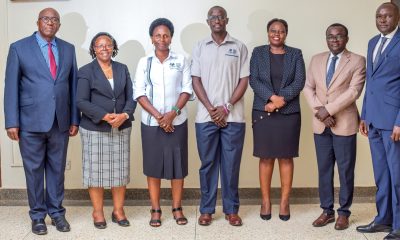
 General2 weeks ago
General2 weeks agoCall For Expression of Interest: MURBS MIS Requirements Gathering
